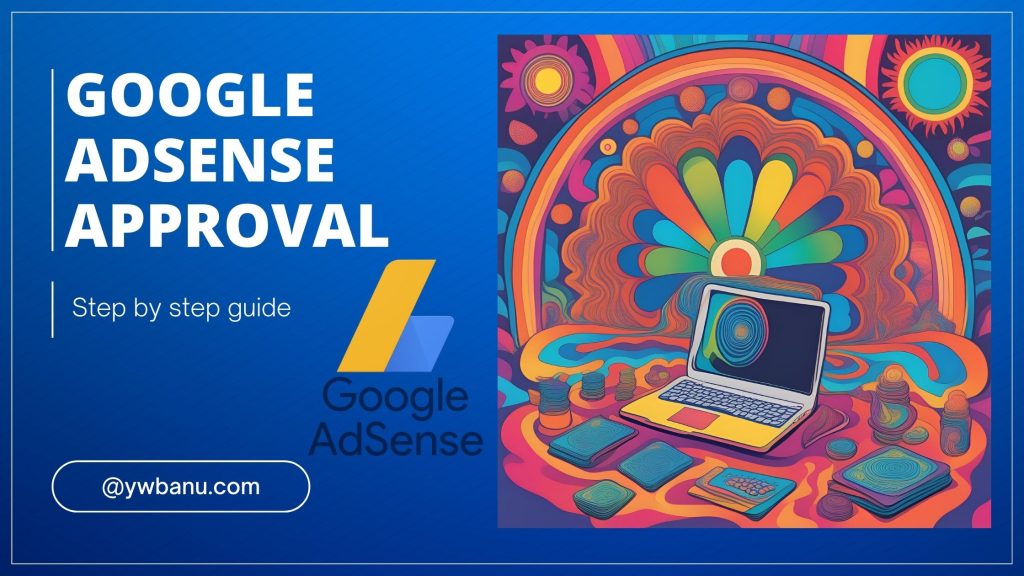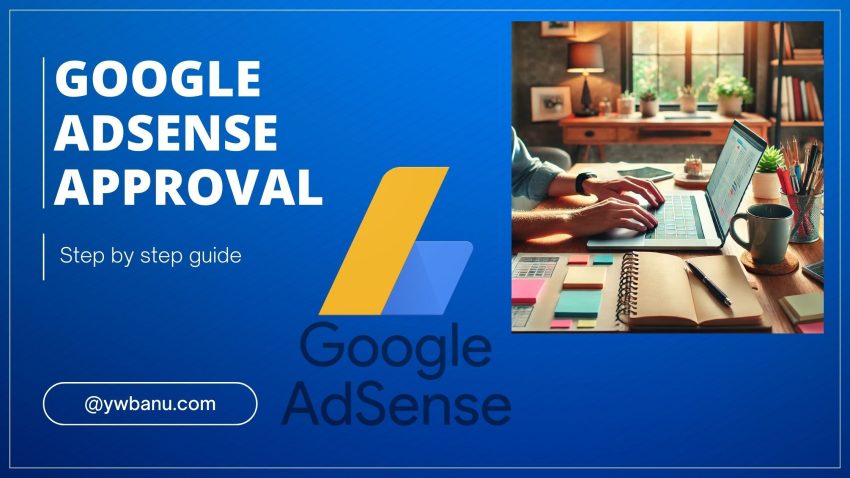Table of Contents
Getting Google AdSense approval for your blog can be a game-changer. To help make the process easier, I’ve prepared a complete guide discussing all the important prerequisites your blog should fulfill to get approved for Google AdSense. Using my guide will give you 100% approval.
Original Content
Original content is the cornerstone of any successful blog. Google prefers content that adds real value to readers. Ensure that you write original, well-researched, and structured articles. Avoid plagiarizing content from other sites, as this can lead to the rejection of your AdSense application.
Sufficient Content
Before applying for AdSense, make sure your blog has a good amount of quality content. Typically, your site should have 20-30 well-written posts or pages. This demonstrates to Google that your website is active, mature, and provides ongoing value to visitors.
Website Design
First impressions matter. Your website should be both professional and easy to use. Avoid messy layouts and excessive ads that distract from the main content and degrade usability. A well-designed site not only appeals to Google but also engages your visitors, encouraging them to stay longer and explore more of your content.
Easy Navigation
Navigation must be user-friendly. Ensure your website is simple to navigate with clear menus and categories. This helps visitors quickly and easily find the information they need. Additionally, logical navigation enhances the user experience, making your site more attractive to both visitors and Google.

Essential Pages
Include important pages such as Privacy Policy, About Us, and Contact Us. These pages help build trust and transparency with your audience. Google requires a Privacy Policy page to inform users about how their data is handled.
Privacy Policy
A Privacy Policy page is not just a formality; it’s a requirement by Google AdSense. This page explains to your visitors how their data is collected, used, and protected. It covers aspects like cookies, data tracking, third-party services, and user consent. By clearly stating your data handling practices, you build trust with your audience, ensuring them that their personal information is safe and respected.
About Us
The About Us page is your opportunity to introduce yourself or your team to your visitors. It provides a brief history of your blog, your mission, and what readers can expect from your content. This page humanizes your blog, making it more relatable and trustworthy. Sharing your story, your qualifications, and your passion for the topics you cover helps build a connection with your audience.
Contact Us
A Contact Us page is essential for communication between you and your readers. It typically includes a contact form, email address, and sometimes social media links. This page encourages feedback, inquiries, and collaborations, making your blog more interactive. It shows that you are accessible and open to engaging with your audience, further building trust and transparency.
Content Compliance
Your content must comply with Google AdSense policies. This means avoiding content that includes, references, or promotes adult content, copyrighted material, violence, and other prohibited topics. Always read and understand Google’s content policies to ensure your blog complies with them.
Avoiding Prohibited Content
Google AdSense has strict policies regarding the types of content that are eligible for monetization. To comply, you must avoid including, referencing, or promoting the following types of content:
- Adult Content: This includes explicit material, nudity, and sexually suggestive content. AdSense is designed to be family-friendly, and such content violates their standards.
- Copyrighted Material: Using content that you do not own or have not been granted permission to use can lead to a rejection. This includes text, images, videos, and music. Always use original content or ensure you have the rights to use any third-party content.
- Violence: Content that promotes or glorifies violence, including graphic depictions of violence, is not allowed. This also covers content related to terrorism, hate speech, and abusive behavior.
- Hate Speech and Discrimination: Any content that promotes hate, discrimination, or prejudice against individuals or groups based on race, ethnicity, religion, disability, gender, age, or sexual orientation is strictly prohibited.
- Drugs and Related Content: Content promoting the sale, use, or production of illegal drugs and recreational drugs, as well as related paraphernalia, is not allowed.
- Illegal Activities: Content that promotes illegal activities, such as hacking, phishing, or the sale of illegal goods or services, is banned.
- Gambling: While some gambling content may be allowed in certain regions, it’s generally restricted. Ensure you review Google’s specific policies if your content relates to gambling.
Reading and Understanding Google’s Content Policies
To ensure full compliance, it’s essential to thoroughly read and understand Google’s content policies. Google provides detailed guidelines on what is acceptable and what is not. Here are some steps to help you stay compliant:
- Review Google’s Official Policies: Visit the Google AdSense Program Policies page to understand all the requirements and restrictions.
- Stay Updated: Google occasionally updates its policies. Regularly check for any changes to ensure your content remains compliant.
- Self-Review: Periodically review your content to ensure it continues to meet Google’s guidelines. Remove or revise any content that may violate the policies.
- Use Google Resources: Utilize tools and resources provided by Google, such as the AdSense Help Center and forums, to get answers to any questions you might have about compliance.
Consequences of Non-Compliance
Failing to comply with Google AdSense policies can have serious consequences, including:
- Application Rejection: If your content violates any AdSense policies, your application for approval will be rejected.
- Ad Serving Suspension: If you violate the policies after approval, Google may suspend ad serving on your site, resulting in lost revenue.
- Account Termination: Repeated or severe violations can lead to the termination of your AdSense account, making it difficult to reapply in the future.
Benefits of Compliance
Complying with Google AdSense policies not only helps you gain approval but also contributes to a positive user experience. A blog that adheres to these standards:
- Builds Trust: Visitors are more likely to trust and return to a site that maintains high content standards.
- Improves Credibility: Adhering to policies enhances your blog’s credibility and reputation.
- Ensures Longevity: Compliance helps ensure that your site remains in good standing with Google, allowing for sustained monetization opportunities.
Traffic
While not a strict requirement, having some traffic to your site can be beneficial. It shows that your content is attracting visitors and that your site has growth potential. Focus on creating valuable content and promoting it through social media and other channels to drive traffic to your blog.
Domain Age
In some countries, Google requires your domain to be at least six months old before you can apply for AdSense. This policy ensures that your site is well-established. Check Google’s policies for your specific region to see if this requirement applies to you.
Supported Language
Ensure your content is in a language supported by AdSense. Google provides a list of supported languages, so make sure your primary content language is on that list. This is crucial for your application to be considered.
Prohibited Content
Avoid content related to hacking, gambling, drugs, and other prohibited topics. Google takes a strict stance against such content, and having any on your site can lead to immediate rejection.
Privacy Compliance
Comply with user privacy guidelines, including not collecting personal data without consent. Make sure your Privacy Policy page clearly outlines how you handle user data. Transparency in data handling is crucial for building trust with your audience and complying with Google’s policies.
No Prior Ban
Ensure that your site or account hasn’t been banned by AdSense in the past. If you’ve had issues with AdSense previously, resolve them before reapplying. A history of policy violations can significantly hinder your chances of approval.
Humanly Written Articles
Finally, ensure that your articles are well-structured and human-readable. Focus on readability and engagement. Avoid automated or poorly written content, as it can negatively impact the user experience and your chances of approval. Quality content is key to a successful AdSense application and overall blog success. For those using AI to generate articles, tools like hix.ai can help convert AI-written content into humanly written blog articles, enhancing the natural flow and readability of your posts.
Conclusion
There are many factors to consider when seeking Google AdSense approval for your blog. Adhering to Google’s guidelines on original, high-quality content and maintaining a user-friendly site design will significantly improve your chances of approval. Remember, patience and perseverance are essential. Keep refining your blog, and before long, you’ll start seeing those AdSense paychecks arriving.

